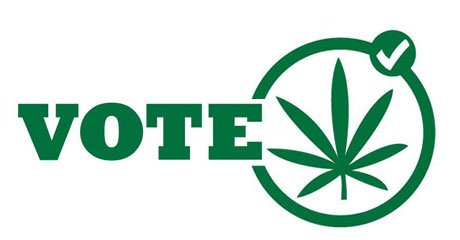One of the traditions and social norms, in today's society, that is being actively challenged by a growing majority of American citizens is the issue of drug legalization. Social norms, or mores, are the unwritten rules of behavior that are considered correct and acceptable among members of a certain group, culture, or society.
During the 18th and early 19th Centuries, in North America, crops, such as, marijuana and hemp were openly grown, sold, traded, used for food, medicine, and recreationally. During World War I, L.H. Dewey had this to say concerning the dire need for hemp used in the war effort:
“...Now with Philippine and East Indian sources of hemp in the hands of the Japanese... American hemp must meet the needs of our Army and Navy as well as of our industries...
...the Navy's rapidly dwindling reserves. When that is gone, American hemp will go on duty again; hemp for mooring ships; hemp for tow lines; hemp for tackle and gear; hemp for countless naval uses both on ship and shore. Just as in the days when Old Ironsides sailed the seas victorious with her hempen shrouds and hempen sails. ‘Hemp for victory!"
(Dewey, L.H. Yearbook of the United States Department of Agriculture. (p.238) (1913)
President George Washington, in 1794, was even quoted as saying, “Make the most you can of the Indian-Hemp seed and sow it everywhere.” Fully understanding and taking into total account how grossly important that the hemp and marijuana economy was to the fledgling Republic, it is extremely difficult to imagine how drastic the sociological perspective, or, understanding human behavior by placing it within its broader social context, would eventually lead to the Marijuana Tax of 1937 – which effectively made cannabis use a federal crime.
One of the most drastic uses of 19th Century, government chided, anti-drug propaganda, was, none other than a 1938 feature film, purchased by exploitation film maker, George Hirliman, entitled, ‘Reefer Madness’. The title alone helped to elicit the right amounts of fear-mongering and hysteria needed for the Federal Bureau of Narcotics war on cannabis production. What was once a thriving, national economic enterprise, fit for a swiftly growing Nation, became enemy #1… seemingly overnight.
A much deeper meaning can also be drawn from this complex dichotomy of sorts – mainly the subject of class conflict, or, the struggle between the capitalists and workers. At this time, the United States of America was still a Nation that was experiencing a lot of growing pains – and family’s life the Rockefeller’s, Warburg’s, Randolph’s, Harrison’s, Roosevelt’s, DuPont’s, and Forbes, to name only a few, had and still have heavy influence on the of ebb and flow of American economics, politics, law, and justice. There is no doubt that the prohibition of hemp and marijuana, specifically, was one way that the bourgeoisie’s, or the capitalists who own the means of production, could further solidify their stronghold over the proletariat’s, or, the mass of workers who do not own means of production… or the exploited class.
If marijuana and hemp had been left to flourish after WWI, a nouveau class of self-sustaining farmers, business merchants, and sales people would have formed out of the economic boom of hemp and marijuana – but with the blockage of prohibition, any semblance of true economic hope for the American common man would not be seen for another 80 years.
